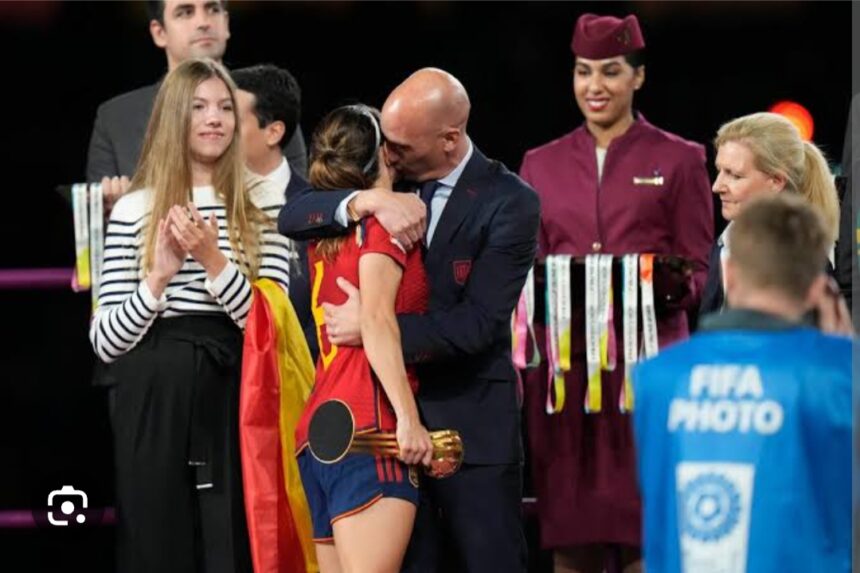In a seismic turn of events, the footballing world stands transfixed as Luis Rubiales, the president of the Royal Spanish Football Federation (RFEF), faces the ramifications of his actions at the Women’s World Cup final in Sydney. Rubiales’ conduct, characterized by an unsolicited kiss planted upon Jenni Hermoso – an act vehemently contested by Hermoso herself – has prompted Fifa, the global governing body of football, to intervene with a heavy hand.
Amidst a cloud of controversy, Rubiales has adamantly refused to tender his resignation from his influential post, even as outrage continues to reverberate. The act of embracing Hermoso without her consent has ruffled feathers across the footballing fraternity and beyond. In response, Fifa, wielding its disciplinary powers enshrined in Article 51 of the Fifa Disciplinary Code (FDC), has taken decisive measures to provisionally suspend Rubiales from all football-related activities, both domestically and internationally.
The suspension, a stark manifestation of the seriousness of the transgression, takes immediate effect and will persist for an initial span of 90 days. This temporary ban underscores Fifa’s unwavering commitment to uphold the sanctity of the sport and the principles of fair play, both on and off the field.
In conjunction with the suspension, the Fifa Disciplinary Committee, spearheaded by Jorge Ivan Palacio, has issued additional directives to safeguard the rights and integrity of Jennifer Hermoso, the aggrieved party. Under Article 7 of the FDC, Rubiales has been strictly instructed to abstain from any form of contact, directly or indirectly, with Jennifer Hermoso or her immediate associates. This stringent directive stands as a potent testament to Fifa’s determination to ensure the sanctity of the disciplinary proceedings while preserving the fundamental rights of the affected individuals.
Furthermore, these directives extend beyond Rubiales himself; the RFEF, its officials, and employees are unequivocally mandated to refrain from any communication, directly or through intermediaries, with Jennifer Hermoso and her close associates. This unyielding edict reflects the gravity of the situation and underlines Fifa’s unwavering commitment to the maintenance of fair play and ethical conduct within the broader footballing ecosystem.
This development, while undoubtedly dramatic, underscores the pivotal role that governing bodies such as Fifa play in maintaining the integrity of the sport. The decision has been communicated not only to Rubiales, but also to the RFEF and Uefa, underscoring Fifa’s commitment to transparency and accountability in its regulatory endeavors.
As the footballing world witnesses this unfolding saga, one thing remains incontrovertibly clear: the realm of football is no longer confined to the pitch alone. It is an intricate tapestry of actions, consequences, and principles that reverberate far beyond the bounds of the playing field. With the Rubiales-Hermoso incident, Fifa’s response stands as a resolute affirmation that respect, consent, and ethical conduct are inalienable tenets that must be upheld within the beautiful game.







